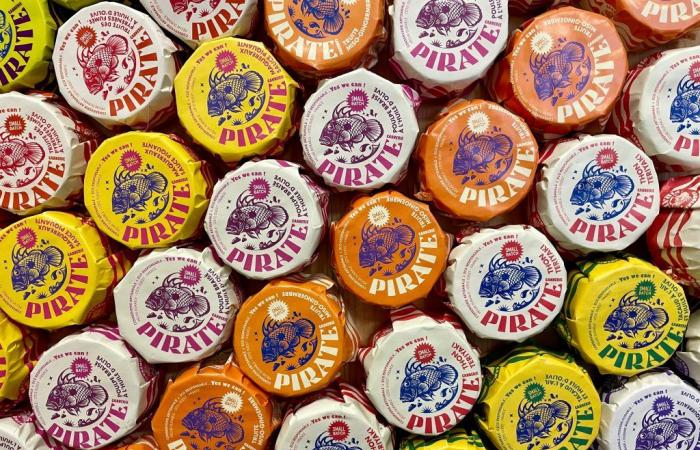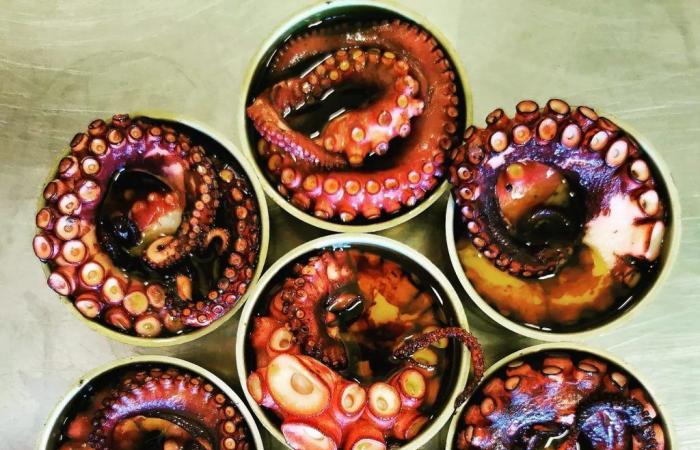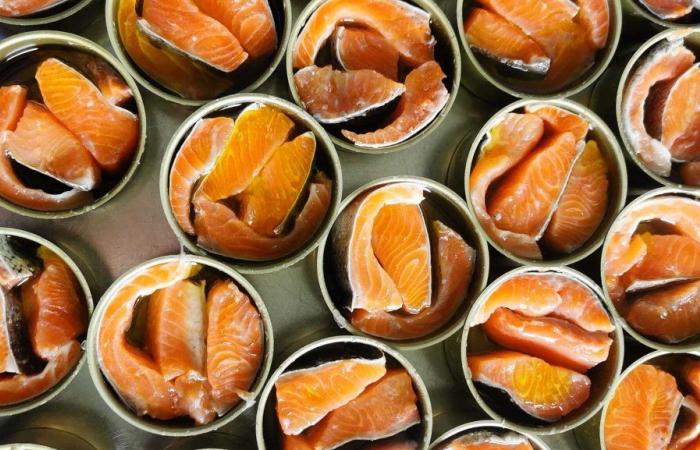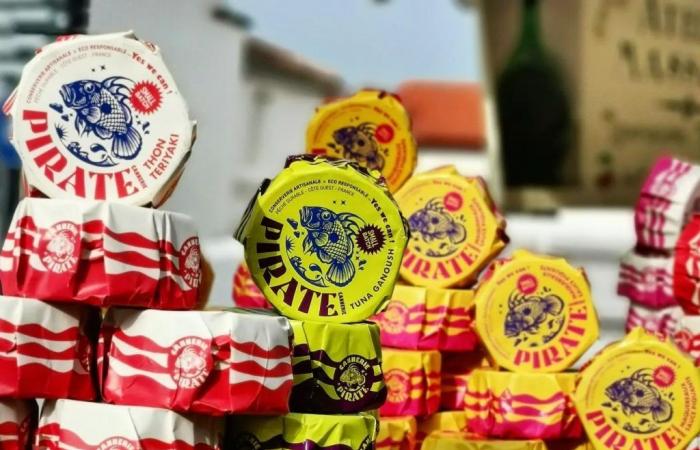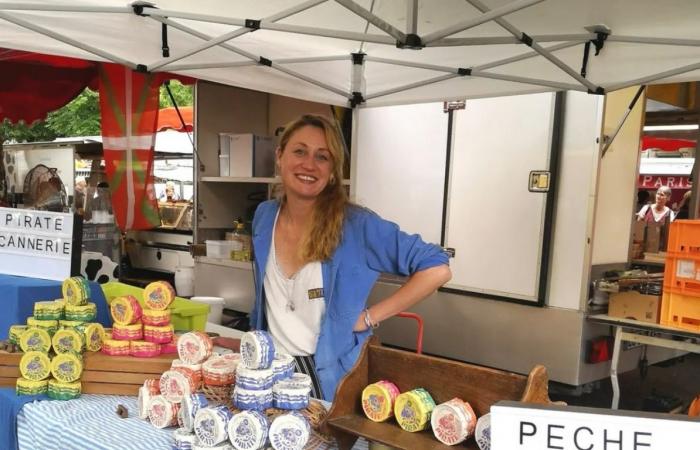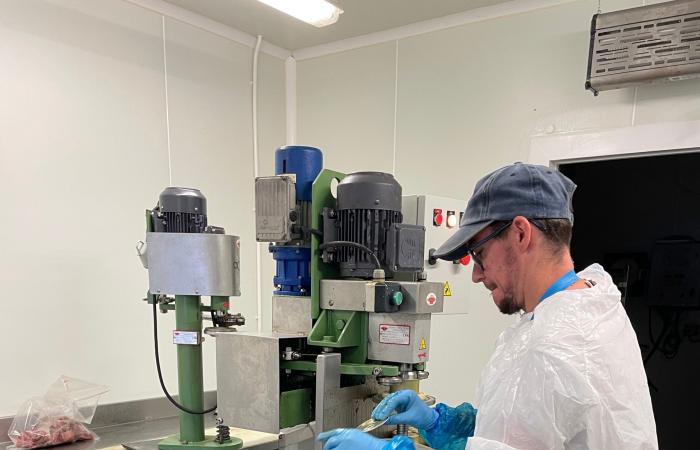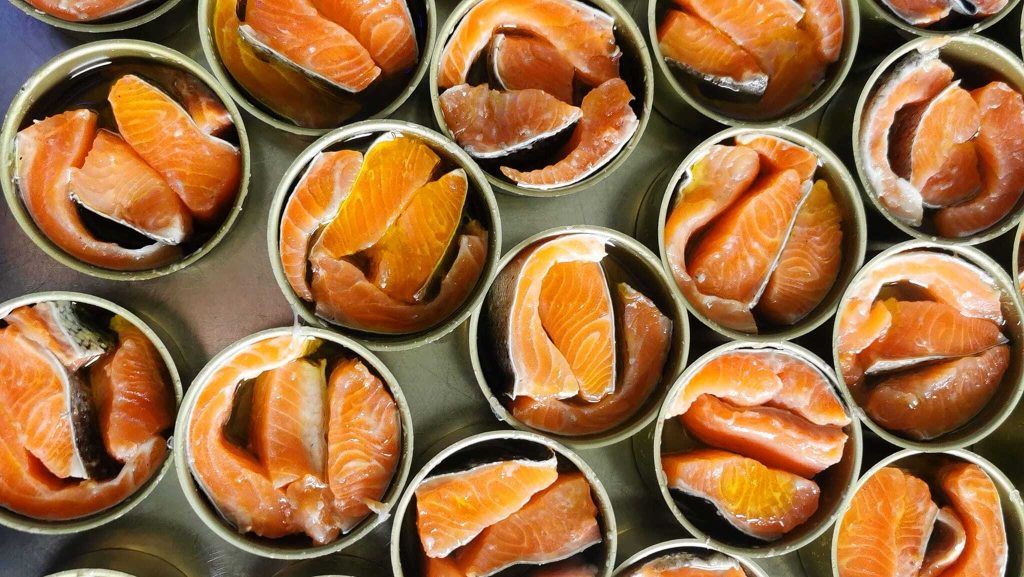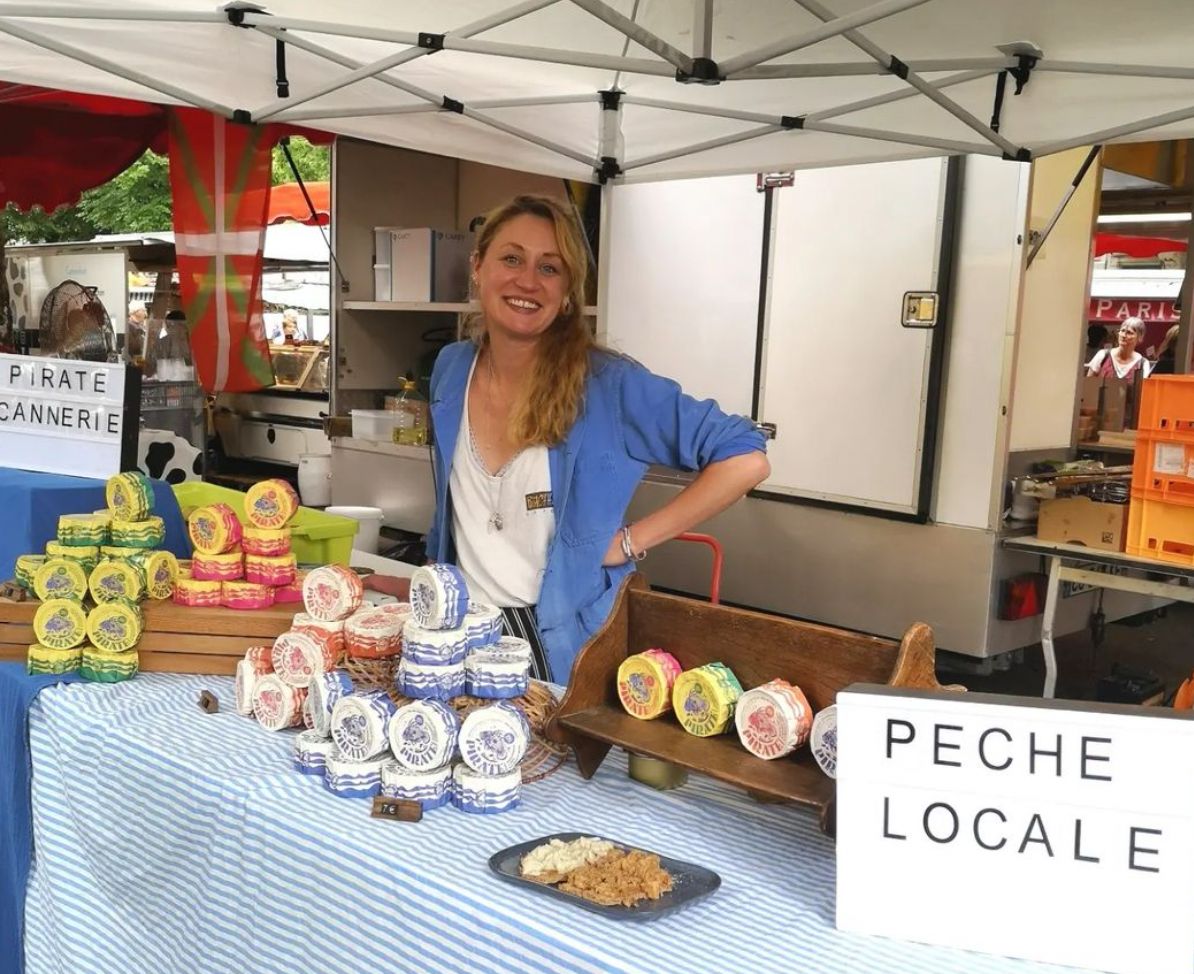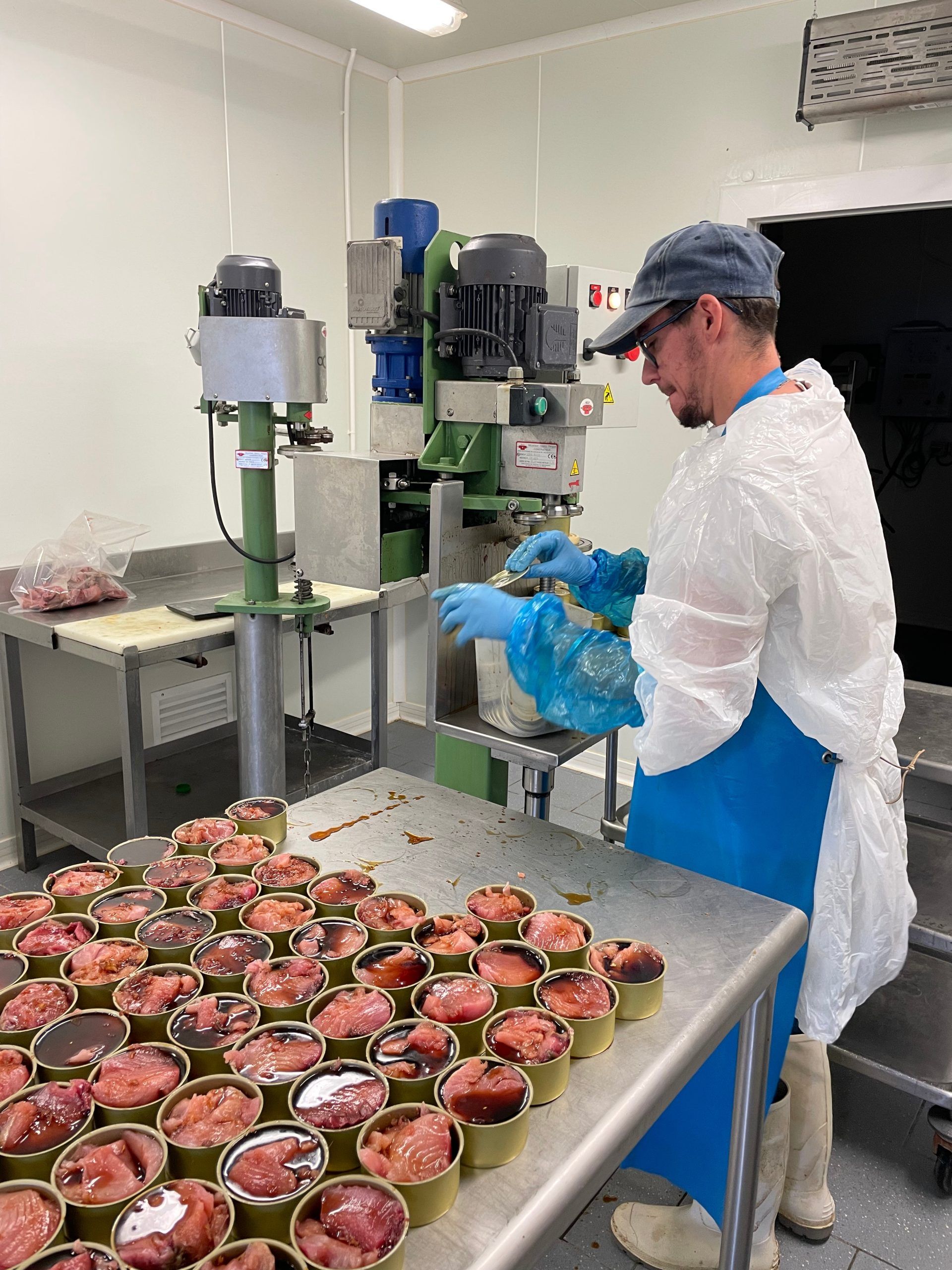In Saint-Laurent-de-Gosse, tuna, octopus, sardines, mackerel, trout and even pout are prepared and canned by Lucie Lesgourgues. At the helm of the Pirate Cannerie cannery, she has made it her mission to enhance local seafood products.
At 36, Lucie Lesgourgues leads her business as a business leader with panache. Originally from the Basque Country, this dynamic young woman did not procrastinate for long before launching into entrepreneurship and creating the artisanal fish cannery Pirate Cannerie in 2022. Coming from the world of catering, this graduate of the Ferrandi school was a waitress, worked in the kitchen, and branched off into the world of wine before landing in the heart of the immense Rungis market.
It was in the aisles of this stronghold of gastronomy that she became familiar with seafood. “I worked there for two years and it was a very good school,” she says. I then went traveling for two years, before returning to settle in my native region. » Upon his return, his experience at Rungis was the starting point of his entrepreneurial adventure. “The month I left Rungis, 45,000 euros worth of fish had been thrown away,” recalls Lucie Lesgourgues, for whom food waste is a major issue. I therefore wanted to promote fish from local fishing and, thanks to the magical tool of canning, to turn an extremely perishable product into a quality food that can be kept for four years.”
Circuit court
After a first stage in Solférino, Lucie Lesgourgues, who trained in particular in the use of an autoclave during the covid period, invested in January 2023 in a former duck cannery in Saint-Laurent-de-Gosse. There she processes the fish that she buys at the Saint-Jean-de-Luz fish auction, from fishermen from Capbreton and Ciboure. She also sources a little from Brittany for octopus and from a fish farm in the Pyrenees for trout. “Cod and salmon are the most consumed fish and stocks are running out,” she explains. I therefore chose to offer species that are sometimes less known but also more local.” Among the 12 recipes available, we find pout with garlic and olive oil, a variety of fragile fish which, prepared in a can, nevertheless offers a delicate flavor. “I have a very small production,” continues the young entrepreneur. I therefore have to adapt to the seasonality of the fish and sometimes I have stock shortages. There is a need to educate people for more sustainable fish consumption. »
Thanks to an order for 20,000 cans of sardines in oil from the Poiscaille company, “the 100% French and sustainable sea basket”, Lucie Lesgourgues, who had been working alone from the start, was able to hire a first employee on time. full in January 2024. Since then, the cutting, preparation and canning of fish has been done with four hands. “It had been two weeks since I launched Pirate Cannerie when I was contacted by Poiscaille,” she recalls. I didn't even have health approval yet when they offered me this collaboration. I organized myself and ended up accepting. It’s thanks to this that I was able to hire Thomas.” She also found help from the ESAT (work support establishment and service) of Arbonne to whom she entrusted the mission of wrapping the boxes in paper.
-
© Pirate Cannerie
-
© Pirate Cannerie
-
© Pirate Cannerie
Flavors and design
The young woman was thus able to increase her production volume and she is currently working on new recipes: “I draw a lot of inspiration from my travels. This is the case, for example, for Teriyaki tuna which is decorated with a Japanese sauce made from soy sauce, mirin and sake. When I think of a new recipe, I do tests at home and if it is conclusive, I quickly move on to production. At the moment, I’m refining a recipe based on cuttlefish.”
At the same time, the development of Pirate Cannerie involves the search for new points of sale and work on communication. Already distributed in nearly 200 points of sale (delicatessens, fishmongers, wine merchants, hotels and restaurants), the preserves are also available online on the brand's website, with their colorful and modern packaging. “In France, we do not have the canning culture like in Spain or Portugal where canned goods are little treasures that consumers love,” believes Lucie Lesgourgues. At home, we immediately think of cans of tuna from the supermarket and a slightly low-end product. With Pirate Cannerie, I was keen to restore the image of canning, to show that we can do beautiful things with it and that it takes a lot of work.”
With an annual production of around 50,000 boxes, growing nicely, this member of the Culinary College of France since 2023 has her blue eyes turned towards the future. New hire, new machine, new recipes, the adventure obviously combines with the future for this business manager who operates above all “at will”.
-
© Pirate Cannerie
-
© I. T.
“Get into action quickly”
Financing
“To set up the project, I used my savings, I took out a loan, I launched a crowdfunding campaign on the MiiMosa platform and I benefited from an honorary loan with the BPI and the Initiative Landes network. I was also supported by the chamber of trades and crafts. »
La communication
“I only go through Instagram. All my business comes from there. Unfortunately, I'm not diligent enough. I'll have to find someone to help me with this part. »
Entrepreneurial advice
“When you start, you always want to do things too well. I think you shouldn't spend too long thinking and that you should take action quickly. For Pirate Cannerie, I went from idea to fruition in four months. »

